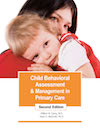Teaming up to Tame a Preschooler (continue)
Unfortunately, young children with self-control issues aren't all treated equally. The Yale study found that rates of preschool expulsion varied widely. They were twice as high in private schools and faith-affiliated centers as they were in public schools or Head Start programs. Why the difference? Public schools are more likely to provide classroom based behavioral consultations, an invaluable resource for both children with behavioral problems and their teachers.
Benjamin was an intense and volatile child. A bright, artistic, well- coordinated boy of 4, he also had a hair-trigger temper and a volcanic way of expressing it. At his Head Start program, when he was upset, he would kick over chairs, attempt to kick and punch both the teachers and other children. When other children made him mad, he'd called them 'stupid,' raise his fist at them, or threaten to have his mother's latest boyfriend beat them up.His vocabulary of foul language-usually delivered in a full roar-- was quite impressive for a child his age.
Angie, his single, overwrought, working mother, found him a handful at home, but even she was shocked by what she was hearing about his out-of-control behavior at preschool. She had trouble believing that trained professionals couldn't deal with her son, but she kept getting calls to pick Benjamin up when his behavior was considered out of control. The school also informed her that his schedule was being reduced and he was at risk of being expelled if his behavior didn't improve. However, while his actions probably would have gotten him expelled already from a private preschool or day-care center, his school geared up for action.
Head Start programs are required to have a mental health professional on staff or on contract. In my community, there's a staff mental health coordinator for these schools. After spending a morning observing Benjamin at school, she called a Child Study Team Meeting, which included staff members of the Head Start program, Angie, and herself. Since I've worked with young children with behavioral issues for many years and am well known to the mental health coordinator, I was invited onto the team, too. We discussed Benjamin's strengths, his behavior patterns, what seemed to work and what didn't in getting him under control, and what might be done to help him.
Too often, kids like Benjamin elicit an authoritarian, 'get-tough' response from adults. This tends to encourage power struggles, since children often respond by getting angrier and more rebellious. The team decided that helping Benjamin make an alliance with an adult who could influence his classroom behavior might work better. We also discussed the importance of helping Benjamin's mother and others in daily contact with him learn new approaches for encouraging self-control without confrontation.












